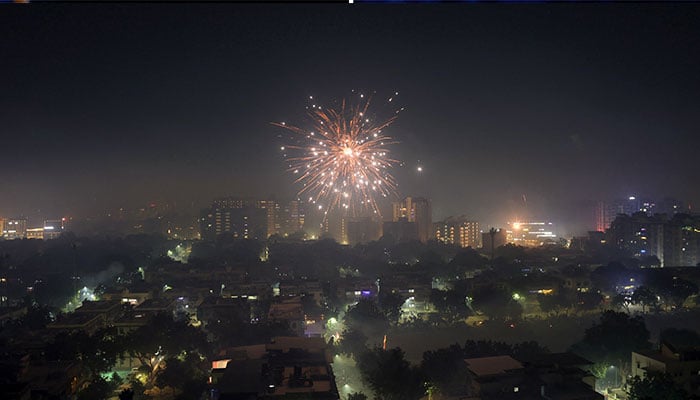
FUNCH VILLAGE: Firecrackers are a staple of Diwali celebrations for millions of Indian Hindus, and this year was no different even as some cities, including New Delhi, banned their use to curb some of the world’s worst levels of pollution.
Diwali honors the triumphant return of Rama, one of India’s most revered figures, and is celebrated in India on Thursday. It is also known as the Festival of Lights to symbolize the victory of light over darkness, or good over evil, which explains why fireworks are so important to the celebrations.
“Fireworks are harmful to the environment, but they are a way to bring us good luck,” said Yash Gadani, a local business owner in Ahmedabad, a city in the western state of Gujarat.
While the ban has not stopped people from using firecrackers, factories that make these devices say their sales have declined this year due to rising costs of living, including higher prices for firecrackers, which has reduced demand.
In the village of Vansh, near Ahmedabad, thousands of workers covered in silver powder make firecrackers by hand.
The industry is largely informal and has lax safety standards. Almost all of Vanch’s 10,000 residents participate in the project, and workers are paid 500 rupees ($5.95) a day, often for 16 hours a day.
“Two fires in factories as well as unseasonal rains have led to an increase in prices of raw materials,” said Dipan Patel, who runs a unit in Vansh.
The fireworks ban, especially during Diwali, has been difficult to enforce, despite the threat of imprisonment and fines.
New Delhi, a city with a population of 20 million, is the most polluted capital in the world. Beginning every October, air quality deteriorates due to factors such as post-harvest burning of farm remains, car fumes, and fireworks smoke that surround the city.
Delhi Environment Minister Gopal Rai told a news agency, “Incidents of burning tree remains are decreasing, but… smoke from fireworks must be controlled.” Years.
